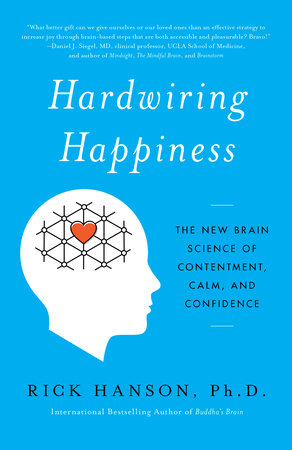When we make the decision to change our lives, fully commit to the work and then override old neural networks that lead us down the same predictable path and create new ones, our biology must change too. If a lobster can do it, why can't you?
YOU MIGHT ALSO LIKE
CLEAR ALL
BY TOPIC
BY TEACHER
BY TYPE
FILTER

TOPIC
- Science and Spirituality (9)
- Stress (9)
- Autoimmune Disease (7)
- Dementia (7)
- Well-Being (7)
- Altered States (6)
- Child’s Trauma (6)
- Cognition (6)
- Meditation (6)
- Memory (6)
- Polyvagal Theory (6)
- Psychedelic Research (6)
- Romantic Relationships (6)
- Consciousness (5)
- Depression (5)
- Habit Formation (5)
- Mind-Body Connection (5)
- Mindfulness (5)
- Trauma Healing (5)
- Anxiety (4)
- Chronic Health Conditions (4)
- Emotional Intelligence (EQ) (4)
- Happiness (4)
- Honoring Emotion (4)
- Imagination and Creativity (4)
- Living with Illness (4)
- Neurodiversity (4)
- Neuropsychology (4)
- Psilocybin (4)
- Psychology (4)
- Religious Experience (4)
- Self-Discovery (4)
- Sex (4)
- Willpower (4)
- Addiction (3)
- Autism (3)
- Buddhism (3)
- Child’s Emotional Growth (3)
- Dysfunctional Childhood (3)
- Mindfulness Meditation (3)
- Parenting (3)
- Resilience (3)
- Transcendent Experience (3)
- Aging (2)
- Astral Projection (2)
- Caregiver Well-Being (2)
- Clinical Depression (2)
- Compassion (2)
- Connection (2)
- Decision Making (2)
- Diet and Nutrition (2)
- Digital Life (2)
- Embodiment (2)
- Empathy (2)
- Generosity (2)
- Habits of Mind (2)
- Human Potential (2)
- Illness and Injury (2)
- Intimacy (2)
- Joy (2)
- Kindness (2)
- Love (2)
- LSD (2)
- Marriage (2)
- Perception (2)
- Physical Health (2)
- Psychedelic-Assisted Therapy (2)
- PTSD (2)
- Self-Healing (2)
- Suffering (2)
- Synesthesia (2)
- Visions and Hallucinations (2)
- Yoga (2)
- Alcohol Addiction (1)
- Attachment Theory (1)
- Awareness (1)
- Belonging (1)
- Biofeedback (1)
- Biohacking (1)
- Cannabis/CBD (1)
- Challenges with Teens (1)
- Changes in Libido (1)
- Child’s Challenging Behavior (1)
- Children’s Well-Being (1)
- Chronic Anxiety (1)
- Chronic Fatigue (1)
- Chronic Pain (1)
- Cognitive Psychology (1)
- Disconnection (1)
- Divorce and Breakup (1)
- Dreamwork (1)
- Ego (1)
- Epigenetics (1)
- Fear (1)
- Fellowship and Community (1)
- Foster Parenting (1)
- Gender Identity (1)
- Global Challenges (1)
- Grief (1)
- Growth Mindset (1)
- Healing Approaches (1)
- Identity (1)
- Infidelity (1)
- Inflammation (1)
- Inner Life (1)
- Inner Peace (1)
- Inner Strengths (1)
- Insomnia (1)
- Intention (1)
- Learning Styles (1)
- MDMA (1)
- Mindfulness Practices (1)
- Negative Self-Talk (1)
- Nightmares (1)
- Oneness (1)
- Past Lives and Reincarnation (1)
- Play (1)
- Problem Solving (1)
- Psychological Approaches (1)
- Relationship Challenges (1)
- Rolfing (1)
- Self-Actualization (1)
- Self-Pressure (1)
- Self-Realization (1)
- Sleep (1)
- Sleep Disorders (1)
- Social Media Addiction (1)
- Somatic Experiencing (1)
- Stress Management (1)
- Telepathy (1)
- Tibetan Buddhism (1)
- Time Management (1)
- Transformation (1)
- Trauma-Informed Therapy (1)
- Young Adult Well-Being (1)
- Zen Meditation (1)
FILTER

TEACHER
- Lisa Feldman Barrett (4)
- Richard Davidson (4)
- Annie Hopper (3)
- Robin Carhart-Harris (3)
- David Perlmutter (2)
- Anat Baniel (1)
- Anna Lembke (1)
- Dacher Keltner (1)
- Daniel Goleman (1)
- David Eagleman (1)
- Dilip Jeste (1)
- Erin Clabough (1)
- Gabor Maté (1)
- Howard Gardner (1)
- Joe Dispenza (1)
- Judson Brewer (1)
- Lisa Wimberger (1)
- Matthieu Ricard (1)
- Michio Kaku (1)
- Oliver Sacks (1)
- Peter A. Levine (1)
- Roland Griffiths (1)
- Ruby Wax (1)
- Sanjay Gupta (1)
- Stan Tatkin (1)
- The Dalai Lama (1)





